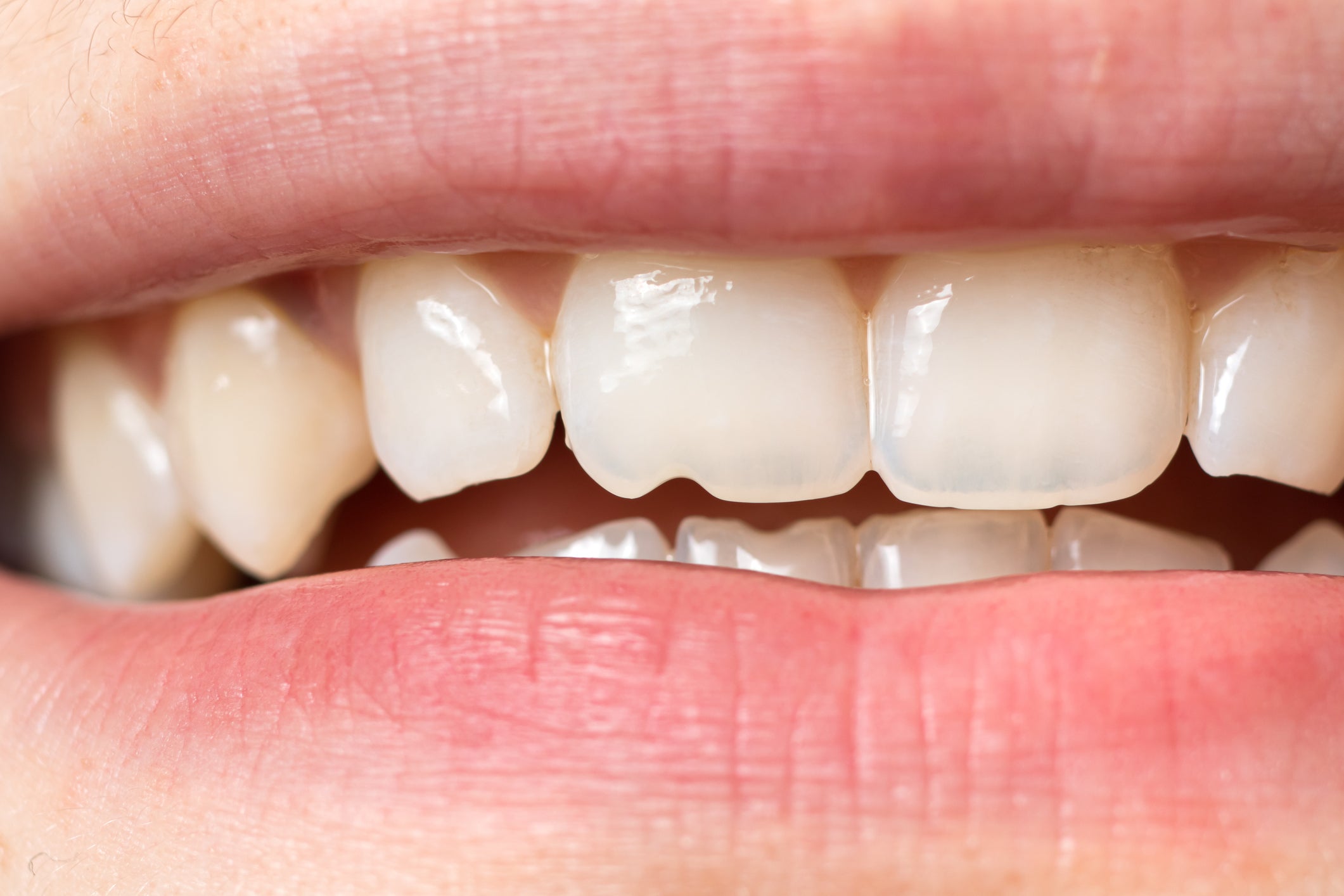Why Your Teeth Chip Away

Enamel, the hard outer covering of your teeth, is the strongest material in the human body. So why is it that your teeth can chip away? Explore the causes of chipped teeth and what factors increase your risk.
Causes of Chipped Teeth
Enamel is tough, but it has limitations. Here are some common situations that may cause your teeth to chip:
- Biting down on hard candy, ice, or non-food substances
- Getting in a car accident
- Falling on your face or getting hit in the mouth
- Clenching your jaw during waking hours or grinding your teeth when you sleep
Risk Factors for Chipped Teeth
Strong, healthy teeth shouldn’t chip and crack. If your teeth are prone to this problem, learn the possible reasons why so you can take steps to prevent chipped teeth:
- Genetics: Some people have genetic traits that undermine the strength of their tooth enamel. Unfortunately, you have no control over this risk factor.
- Poor diet: If you don’t supply your teeth with the minerals they need, they won’t be as strong. The best foods for a healthy smile contain calcium, protein, folic acid, fiber, and vitamins A and D. Include more fruits, vegetables, nuts, and low-fat dairy in your diet to increase your intake of these nutrients.
- Tooth decay and enamel erosion: Too much sugar and acid in your diet can decay and erode your teeth. Large fillings also tend to weaken the natural tooth material around them. To lower your risk, eat less candy, soda, juice, citrus fruits, and starches.
- Misaligned bite: Crooked teeth aren’t just a cosmetic concern. If your teeth don’t align properly, something as simple as chewing could chip or crack a tooth. Fortunately, braces can help fix this problem.
- Acid reflux: Stomach acid is potent enough to damage tooth enamel. If you have acid reflux, heartburn, or an eating disorder that causes frequent vomiting, your teeth could weaken significantly and be more vulnerable to chipping.
- Contact sports: Do you play football, hockey, rugby, or other contact sports? If so, you’re more likely to suffer mouth injuries. Protect your teeth, lips, and gums by wearing a mouthguard.
- Bruxism: Teeth grinding, also known as bruxism, can wear down enamel. This makes you more prone to chipping a tooth during your day-to-day activities. Protect your teeth by wearing a custom-made mouthguard while you sleep.
- Age: Tooth enamel naturally wears down over the years, increasing your risk of chipping a tooth as you age. If you’re over age 50, talk to your dentist about any additional precautions you should take.
If you need help repairing a chipped tooth, turn to Park 56 Dental. We offer veneers and composite fillings to fix chipped teeth pain-free. We also fit patients with custom Under Armour® mouthguards to help prevent chipped teeth. You’ll love receiving treatment in our spa-like New York dentist office, so don’t hesitate to schedule an appointment today! Contact us at (212) 826-2322 to get started.
RECENT POSTS
categories
- Uncategorized
- Cosmetic Dentistry
- Veneers
- Healthier Teeth
- Teeth Whitening
- Dental Health
- Video
- Dental Emergencies
- Invisalign
- Dental Implants
- Root Canal
- Sedation Dentistry
- Infographic
- Dental Crowns and Bridges
- Dental Anxiety
- Gum Disease
- COVID-19
- Bad Breath
- New York Dentist
- Cut out sugar
- General Dentistry
- Oral Health
- Oral Cancer
- Dry Mouth
- Gum Health
- Toothache
- Dental Sealants
- Cavities



